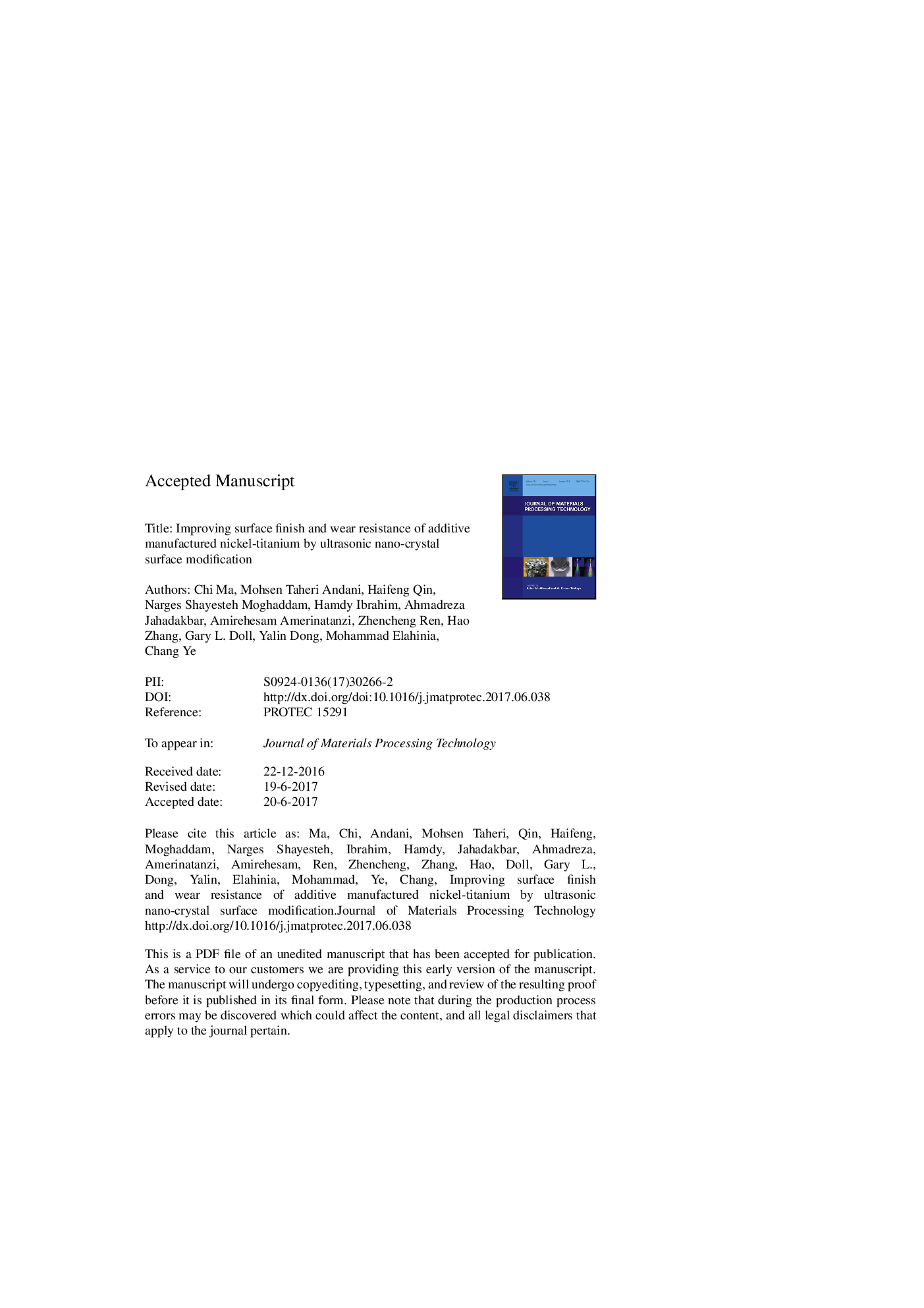| Article ID | Journal | Published Year | Pages | File Type |
|---|---|---|---|---|
| 5017747 | Journal of Materials Processing Technology | 2017 | 39 Pages |
Abstract
Nickel-titanium (NiTi) alloys have great potential to be used as biomedical implants or devices due to their unique functional properties (i.e., shape memory properties and superelastic behavior). The machining difficulty associated with NiTi alloys is impeding their wide application. Additive manufacturing (AM), however, provides an alternative method to manufacture NiTi structures. One major concern associated with NiTi devices fabricated in this route is the potential for the release of toxic Ni ions due to the poor surface finish as well as high surface porosity. In this study, NiTi samples were produced using selective laser melting, the most common AM techniques. Then, an innovative surface processing technique, ultrasonic nano-crystal surface modification (UNSM), was used to mitigate the potential for the Ni ions release. By simultaneous ultrasonic striking and burnishing, UNSM can significantly improve surface finish and decrease surface porosity. In addition, UNSM induces plastic strain which in turn hardens the surface layer. The synergistic effect of better surface finish, lower subsurface porosity, and a hardened surface layer resulted in higher wear and corrosion resistance. It is therefore expected that UNSM can be potentially used to treat biomedical devices.
Keywords
Related Topics
Physical Sciences and Engineering
Engineering
Industrial and Manufacturing Engineering
Authors
Chi Ma, Mohsen Taheri Andani, Haifeng Qin, Narges Shayesteh Moghaddam, Hamdy Ibrahim, Ahmadreza Jahadakbar, Amirhesam Amerinatanzi, Zhencheng Ren, Hao Zhang, Gary L. Doll, Yalin Dong, Mohammad Elahinia, Chang Ye,
